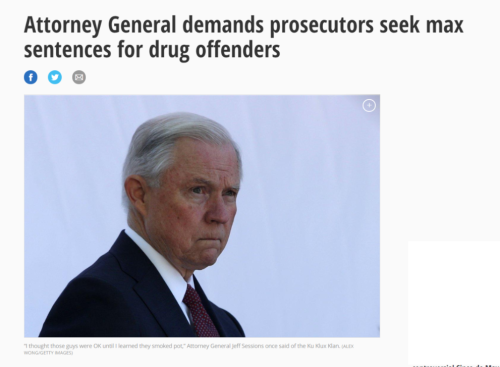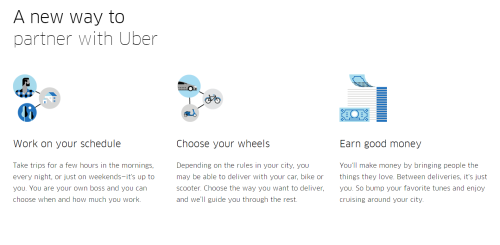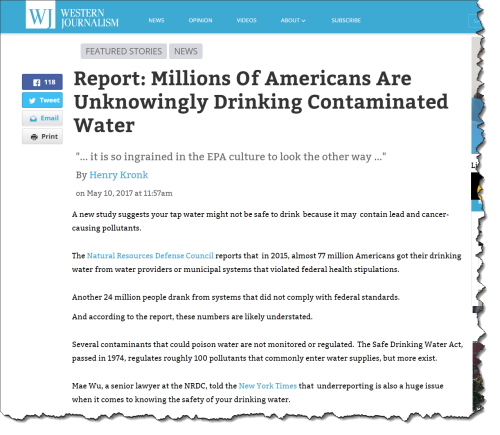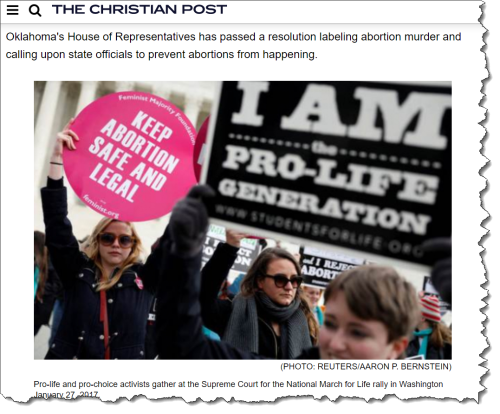James L. Paris's Blog, page 86
May 17, 2017
AG Sessions Orders Prosecutors to Seek Longest Possible Sentences for Drug Offenders
Insofar as the war on drugs is concerned, the trend, over the last couple of decades, has been increasingly in the direction of de-escalating punishment and even decriminalizing select offenses and substances. Whatever one���s opinion is on the use of illicit drugs, the fact that said use has continued to grow���in spite of the near-incalculable sums of money that have been spent on the crackdown effort���long ago opened the door to at least the consideration of approaching the worldwide drug problem in a modified fashion.
Well, as far as that goes, Attorney General Jeff Sessions is having none of it. According to the New York Daily News, Sessions is going ���nuclear��� on the war on drugs, and demanding that prosecutors across the country seek the longest possible sentences for drug offenses.
In a memo recently sent to all federal prosecutors, Sessions wrote, ���It is a core principle that prosecutors should charge and pursue the most serious, readily provable offense. This policy affirms our responsibility to enforce the law, is moral and just, and produces consistency.���
This about-face is sure to push incarceration rates to the absolute limit. The U.S. already has one of the world���s highest, and a not-insignificant number of those behind bars have been convicted of nonviolent drug offenses.
Sessions, however, is particularly well known for his strict law-and-order postures, and has said that illegal drug use is at the source of a crime wave that presently grips the nation.
By Robert G. Yetman, Jr. Editor At Large
Subprime Borrowers Now Landing Unsecured Credit Cards with Ease
Borrowers of all credit stripes are now finding it relatively easy to access unsecured lines of credit, according to an article that appears over at the Detroit Free Press.
Now that the financial collapse of 2008, as well as much of its acute fallout, is in the past, says personal finance columnist Susan Tompor, we���re seeing the largest number of consumers with credit cards since 2005. Citing data provided by TransUnion, Tompor reports that well over 170 million Americans were able to access a credit card as of the end of Q1 2017, which is the highest such number in the last 12 years. Additionally, writes Tompor, almost 22 million more people have cards now than the number who did back in 2010.
A big part of the reason behind the significant jump in the number of folks armed with plastic money is that issuers seem more comfortable granting unsecured cards to people who are subprime borrowers ��� those with credit scores and histories that are far below ���excellent.���
According to TransUnion���s Paul Siegfried, it turns out that subprime borrowers are the group that saw the fastest rate of growth in card issuance over the last two years. Right now, according to Siegfried, there are just over 16 million consumers with subprime credit profiles ��� typically defined as having a credit score of 600 or less ��� who have credit cards, and the rate of growth continues to surge; the number of subprime borrowers gaining cards was up about nine percent in Q1 2017, which is far ahead of the growth seen within other risk categories.
By Robert G. Yetman, Jr.
May 16, 2017
Altercation at Town Hall Held by GOP Congressman Illustrates Dangerous Political Climate in Nation
The concerted effort by the left at creating obstructionist, unproductive environments at local town halls held by Republican members of Congress appear to be ratcheting up in intensity. Once content to ���merely��� scream at their GOP hosts, it now appears that the verbal onslaught may be giving way to one more physical in nature.
As reported by The Daily Caller, just last Thursday, North Dakota Rep. Kevin Cramer found himself involved in a physical confrontation initiated by a town hall attendee who apparently decided that hollering at the politician wasn���t enough.
���Will the rich benefit from, if the health care is destroyed, do the rich get a tax break? Yes or no?��� the man angrily yelled at Cramer. Clearly dissatisfied with his approach up to that moment, the man then went directly up to Cramer, stuffed a handful of cash into his collar, and said, ���There you go, take it.���
Cramer, obviously flustered, said, ���That���s too far,��� and the man was ushered out of the meeting by police.
While the top-of-the-lungs yelling and screaming at town halls have been bad enough, the possibility that an ominous corner has been turned, and that the events may shortly descend into dangerous, physical free-for-alls, is something about which any and every reasonable person, regardless of political persuasion, should be concerned.
By Robert G. Yetman, Jr. Editor At Large
Report: Christians Fleeing Mideast in Record Numbers
An article over at Newsmax.com highlights the distinct struggles for Christians in the Middle East, presently. As a matter of fact, according to the piece, the combined and highly-coercive efforts of radical Islamist groups like the Islamic State���as well as the Islamic political regimes dominating the region���have made life largely intolerable for those of a Christian orientation. As a result of the relentless persecution, it is anticipated that, by year 2025, Christians will make up just three percent of the entire population of the Middle East.
 While Christians began leaving the region in earnest roughly a century ago, the exodus has greatly accelerated over the course of the last several years with the advent of the obvious turmoil, much of it explicitly anti-Christian in nature. Indeed, there are now more Arab Christians living outside the Middle East than there are residing in it.
While Christians began leaving the region in earnest roughly a century ago, the exodus has greatly accelerated over the course of the last several years with the advent of the obvious turmoil, much of it explicitly anti-Christian in nature. Indeed, there are now more Arab Christians living outside the Middle East than there are residing in it.
As noted, the problem for Christians in the region is attributable not only to the rise of groups like ISIS, but also to the anti-Christian laws and policies enacted by many Middle East countries.
Particularly concerning to many observers is the lack of any counterbalance to the prevailing religious ideology in the Middle East resulting from the mass departure of Christians. While Christians have long been a stark minority in the region, their effective elimination will mean an even more radicalized Middle East.
���The disappearance of such minorities sets the stage for more radical groups to dominate in society,��� says Todd Johnson, director of the Center for the Study of Global Christianity at Gordon-Conwell Theological Seminary. ���Religious minorities, at the very least, have a moderating effect.���
By Robert G. Yetman, Jr. Editor At Large
Jim Paris Live National Interview (Replay)
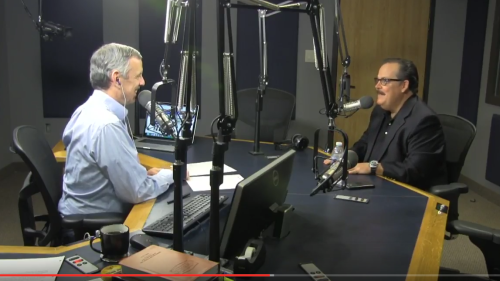
I was excited to learn that there is a video of my appearance yesterday on Point Of View Radio. Here is a link to my post on Facebook about how to access the video (this will also give you a chance to become a Facebook friend at the same time)
Listed Below Are Topics Covered On This Interview
How a grandmother paid for a trip to Disney with her grandson by completing online surveys.
Amazon hiring thousands of people to work from home.
Why Jim thinks everyone should own at least $100 of Bitcoin.
How to find the cheapest flight in less than one minute.
How to get a free home phone.
Why no one should be paying for cable TV anymore.
The new way that people are paying for retirement with side gigs.
The smart way to pay for college without going into debt.
May 15, 2017
Community College May Be the Key to Earning an Affordable Bachelor���s Degree
Whether you are a parent or grandparent of a budding young college student, or are perhaps seeking to return to school yourself in the interest of furthering your career, the now-enormous cost of higher education has become such a consideration that many are either changing life plans outright because of that cost, or are choosing to embark on a perilous financial journey by going neck-deep in debt in order to pay the freight.
One great option for pursuing a four-year degree in a way that makes the financial component of doing so much more manageable involves the strategic use of a community college in one���s efforts. While two-year schools have been the butt of elitist jokes for longer than anyone can remember, many are now of a quality that students can seamlessly transfer into universities from community colleges and finish their bachelor���s degrees on time.
This is nothing to sneeze at; according to an article over at CNBC.com, community colleges, on average, charge just $3,500 per year for tuition. That���s about one-third of the tuition cost at a four-year public college, and about one-tenth of the cost at a private university.
In other words, many students can assemble a perfectly fine, perfectly transferable academic record for the first two years of their bachelor���s degree program, but a massively reduced cost.
To employ the strategy with great effectiveness, however, there are three, sequential steps the student should take, says Davis Jenkins of Columbia University���s Community College Research Center.
First, the student should determine their major and declare it as soon as possible. Doing that limits the chances that he or she will take any courses during the first two years that don���t ultimately count toward the graduation requirements at the four-year school.
Picking up from step one, Jenkins recommends that once a major is chosen, the student contacts one of the universities they���re considering and find out from the appropriate department what courses should be taken during the first two years to ensure a smooth transition to the third year.
Step three involves taking the curriculum information learned from the university and getting with the academic advising office at the community college to be sure the course selections made there are just what they should be.
A silver lining of the ridiculous cost of so many four-year schools is the diminishment of academic stigmas that have historically plagued community colleges. Anyone seeking a bachelor���s degree these days would be crazy not to try to find a way to earn it without becoming mired in financial quicksand. Going the community college route offers as good a way as any to effectively accomplish that goal.
By Robert G. Yetman, Jr. Editor At Large
Trump Tells Liberty Grads that ���in America, We Don���t Worship Government; We Worship God���
As reported by The Washington Post, Donald Trump delivered the first commencement speech of his life this past Saturday at Liberty University in Virginia, and, with it, a message of great hope and inspiration for this year���s graduates, as well as strong statement of faith and respect for traditional values.
There was nothing subdued or self-conscious about the enthusiasm Trump conveyed in his address, wowing the assembled with words like these:
���Ask yourself, with all of those blessings and all of the blessings that you have been given, what will you give back to this country and indeed to the world, what imprint will you leave in the sands of history? What will future Americans say we did in our brief time right here on earth. Did we take risks? Did we dare to defy expectations? Did we challenge accepted wisdom and take on established systems? I think I did, but we all did and we���re all doing it. Or did we just go along with convention, swim downstream, so easily with the current and just give in because it was the easy way, it was the traditional way or it was the accepted way? Remember this: nothing worth doing ever, ever, ever came easy. Following your convictions means you must be willing to face criticism from those that lack the same courage to do what is right and they know what is right but they don���t have the same courage or guts or stamina to take it and to do it. It���s called the road less traveled.���
At one point, Trump spoke what turned out to be the sound bite of the speech when he said, to rousing applause:
���In America, we don���t worship government; we worship God.���
How about that?
By Robert G. Yetman, Jr. Editor At Large
May 14, 2017
Now You Can Get Paid To Drive Your Car Without A Passenger
In recent years, it seems like the most popular part time gig is so called ride sharing. The leader in this niche is Uber. Ride sharing offers a more affordable alternative to taxis, and a robust part time opportunity for drivers. Uber drivers will tell you, however, that they are not always dealing with the most pleasant and courteous passengers. One story you will hear frequently is that of disrespectful passengers, and some that are even drunk. If an inebriated passenger throwing up in your car is not bad enough, there is the unknown risk associated with picking up total strangers.
UberEats provides an alternative to transporting passengers; delivering food. UberEats drivers get paid much in the same way, but don't have to deal with the headaches of passengers. In many cities, deliveries can be made on a bicycle or even using a motor scooter (meaning you don't necessarily even need a car). If you do use car to make deliveries, the requirements are much less stringent than for standard Uber drivers. Apparently, older cars are OK since you are transporting food and not passengers (as old as model year 1996 versus 2002 requirement for Uber).
Another difference is that UberEats drivers that sign up a few days in advance to make deliveries get more opportunities, as some of the meal deliveries are scheduled days in ahead of time. Explained further here from RideSharingDriver.com -
Full restaurant delivery ��� Similar to Postmates and DoorDash, this is on-demand delivery from restaurants. Customers can choose any menu item from a restaurant and drivers pick up food at the restaurant and bring the food to customers.
UberEATS Instant Delivery ��� EATS drivers pick up pre-prepared meals from distribution centers and store them in a warm bag. Drivers have to schedule shifts, and service hours are typically limited to lunch and dinner time hours. Customers order from a fixed menu.
It is always tough to nail down the actual earnings from an opportunity like this, as there are so many variables. We found this social media post, that seemed to put things into perspective -
Over the past three days I've brought in almost $200 making 24 deliveries. No, it's not quit your job income but it can bring in some extra cash when you need it. I started driving to help pay for my books this semester.
Other posts we read, seemed to indicate that the earnings were similar to those of delivering pizza. One difference, however, is that presently the UberEats platform does not allow for tipping on the app. This does not mean that drivers never receive a cash tip, it is just not as likely, as UberEats users generally like to pay exclusively through the company's app. Even without tipping, the delivery charge earned by drivers seems to put them on par with the overall earnings of pizza delivery. The big difference, however, is that UberEats drivers can control their own schedule, which is not typically the case for pizza delivery drivers.
How do I get started?
If you are older than 19 years old, have a good driving record, and insurance, you likely qualify to become a driver. Click Here To Find Out More Details And To Apply
If you are a driver for UberEats, please use the comments section below and we can start a conversation.
Helping you make the most of God���s money!
James L. Paris
Editor-In-Chief ChristianMoney.com
Follow Me on Twitter Twitter.com/jameslparis
Christian Financial Advice
Jim Paris 24 Hour Radio
Study: ���Millions of People��� Are Drinking Contaminated Water
You probably remember when it became fashionable for people to get their drinking water from little plastic bottles and filtered systems, rather than out of the good, old tap. For many years now, drinking tap water, in the face of all the ���new and improved��� ways of accessing water to consume, has been viewed little differently from drinking water out of a ditch by the side of the road.
Even while embracing the trend toward premium water, some have held its indulgence in some disdain, believing that any talk that such water is really better or healthier - or that tap water is really worse - is just hype.
Well, according to a new study conducted by the Natural Resources Defense Council (NRDC) and reported by Western Journalism, it looks as though that those who���ve been careful to avoid drinking tap water for years now may have had it right all along. A report by the NRDC says that, in 2015, nearly 77 million Americans ��� almost a quarter of the entire U.S. population - accessed drinking water from over 18,000 public providers that were in violation of the Safe Water Drinking Act. The range of violations is substantial, and included such things as not testing the water for contaminants and failing to report found incidents of contamination to appropriate authorities (or to the public).
The issue of contaminated drinking water in the United States prominently resurfaced in recent years because of the Flint, Michigan water crisis. Back in 2014, Flint changed the source of its drinking water from Lake Huron and the Detroit River���to the insufficiently and improperly treated Flint River; anti-corrosives were not applied to the Flint River, causing lead from pipes to leach into the city���s water supply at significantly elevated levels.
Per the NRDC, however, Flint is by no means the only place where dangerous drinking water lurks.
���Flint was a wake-up call for Americans, but it���s not the only place in the United States with tap water problems,��� says Erik Olson, NRDC Director of Health. ���Thousands of other cities and small towns across the country are serving water with lead or other contamination problems to millions of people.���
By Robert G. Yetman, Jr. Editor At Large
Oklahoma House of Representatives Passes Resolution that Refers to Abortion as ���Murder���
As reported by The Christian Post, the Oklahoma House of Representatives last Monday took the extraordinary step���by today���s standards, anyway���of passing a resolution that refers to abortion as ���murder.��� Moreover, the resolution demands both that judges not do anything that infringes on the Legislature���s ���right��� to effectively criminalize abortion, and that state authorities act, in the capacity of their offices, to prevent the procedure outright.
House Resolution 1004 is, indeed, rather dramatic as written, particularly in light of the progressive narratives currently dominating America. It begins by stating that ���all human life is protected by God's law and the highest laws of the land,��� and immediately follows that opening passage with:
������the Declaration of Independence explains that all human beings are created in the image of God, and are thus endowed by their Creator with the unalienable right to life;
������the Constitution of the United States mandates that no state shall deprive any human being of life, liberty, or the pursuit of happiness without due process of law, nor deny to any human being within its jurisdiction the equal protection of the laws.���
At one point, the resolution reads, ���Oklahoma judges and specifically justices of the Oklahoma Supreme Court are directed not to interfere with this Legislature���s right to clarify Oklahoma criminal law regarding abortion per Section 36 of Article V of the Oklahoma Constitution.���
The document goes on to say:
���... every public official in Oklahoma, including but not limited to sheriffs, district attorneys, judges and justices, the Attorney General, and the Governor, is directed to exercise their authority as appropriate in their respective jurisdictions to stop the murder of innocent unborn children by abortion.���
To be clear, House Resolution 1004 is merely a statement of policy, not a law. Still, that even such a philosophical expression can be officially produced by a legislative body anywhere in these United States in year 2017 should provide a glimmer of hope that all is not yet lost.
By Robert G. Yetman, Jr. Editor At Large

